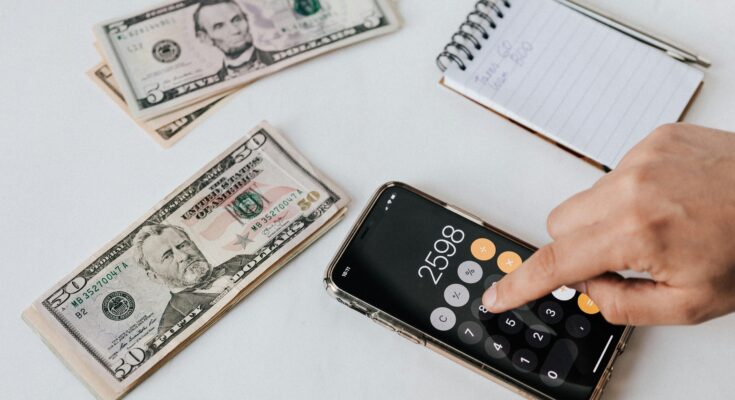ZonaJakarta – Let’s talk about something that might sound big and complicated: the economy. Now, connect it to something a lot more personal: your savings and monthly budgeting.
When you hear about global economic news—like inflation, trade wars, or rising prices—it can feel distant and overwhelming.
You might think, “I’m just one person. How does my little savings account affect the whole world?” The truth is, the money you choose to save is part of a much bigger picture. The global economy and your wallet are more connected than you think.
The world economy and your personal finances are more connected than you might think. Here’s why:
First: What Is the Economy Anyway?
Think of the economy like a giant circle of money: people earn money, spend money, save money, invest money. Businesses grow. Governments borrow and lend. Countries trade with each other. And it all keeps moving.
Now, imagine billions of people doing all of that at the same time. That’s the global economy.
Big events in the world—like a recession in the US, a trade dispute between countries, or spikes in oil prices—can quickly trickle down to your daily life.
So, Where Do You Fit In?
You are part of this system. Every time you spend, save, or invest—you’re influencing how money flows. It’s like you’re one drop in a huge ocean, but your ripples still matter.
So, how is it connected to the world economy? And even more importantly, how does it impact you and the people around you?
1. When You Save, You Build Stability For Yourself and the Economy
When people save money, they create safety nets. That means if something bad happens (like a job loss, a health emergency, or a global crisis), they’re not forced into panic mode.
When more people have savings, the overall economy is more resilient. It doesn’t crash as easily, because people aren’t all relying on credit or government aid at once. It’s like everyone holding onto an umbrella—if one or two people face a storm, they’re okay. If no one has an umbrella and the storm hits? Total chaos.
2. Why the World Economy Affects Your Saving Habits
Now let’s flip the script. What happens globally can affect your ability to save:
Inflation makes things cost more, which means you might have less left to save.
Interest rates change how much you earn on savings or pay on loans.
Recessions (a slowdown in the economy) might mean fewer jobs, which makes saving harder.
So if you’ve been finding it hard to save lately, it’s not just you. Sometimes, the world economy really does squeeze personal budgets.
But that’s why saving, even just a small amount, becomes even more important. It gives you a little shield against those bigger forces.
3. What Happens to Your Money When You Save It in a Bank?
When you put your money into a bank, it doesn’t just sit in a vault. That money is loaned out to other people or businesses—to buy homes, start companies, or go to school. So in a way, your savings help fuel the economy.
Your little savings account might be helping someone else start their dream café down the street. Isn’t that kind of cool?
4. Saving Builds Confidence, and Confidence Builds Economies
When people feel financially secure, they tend to spend more thoughtfully. That kind of smart spending and saving keeps businesses alive, keeps jobs going, and keeps the economy steady.
The more people save, the less fear there is in uncertain times—and the more power individuals have to bounce back from setbacks. That collective confidence? It’s what keeps economies moving forward.
5. Your Savings = Power, Freedom, and Preparation
At the end of the day, saving isn’t just about money. It’s about having choices.
When you save, you give yourself:
- The freedom to say “no” to things that don’t align with your goals.
- The ability to take risks, like switching jobs or starting something new.
- The peace of mind that if something goes wrong, you’ll be okay.
Multiply that by millions of people doing the same thing? You get a smarter, stronger economy—built on individuals who aren’t just surviving, but planning and thriving.
6. Why Monthly Budgeting Becomes Essential? It Keeps You Prepared
In a world where prices and incomes can change quickly, having a monthly budget is like having a financial safety net.
When global events push prices up, your budget helps you spot where you’re spending more and where you can cut back.
7. One of Your Ultimate Stress-Relieved Treatment
Knowing exactly where your money goes means fewer surprises when the world economy throws a curveball.
8. Does My Little Bit Saving Really Matter? Well, It Is—Globally!
Believe it or not, your personal financial habits can even help shape a better world. Responsible budgeting and saving can lead to smarter spending, more sustainable choices, and investments that support positive change—like green energy or social causes.
In Short
The world economy and your wallet are closely linked. Saving is powerful. Not because it makes you rich overnight—but because it gives you control in a world that doesn’t always feel stable.
And when more people feel that kind of security, the whole world benefits. So whether you’re saving $5 or $500 a month—keep going. You’re doing more good than you realize.
Monthly budgeting helps you stay in control when global events shake things up. Saving—even a little—protects you and helps the economy grow.
Your choices, multiplied by millions of others, can make a real difference in the world. And don’t even forget these:
- Protect you from financial stress.
- Help keep your community and country’s economy stronger.
- Support a bigger system of lending, investing, and growing.
- Make you feel more grounded and prepared in an uncertain world.
So next time you sit down to plan your monthly budget, remember: you’re not just looking after yourself—you’re playing a part in something much bigger. (*)




